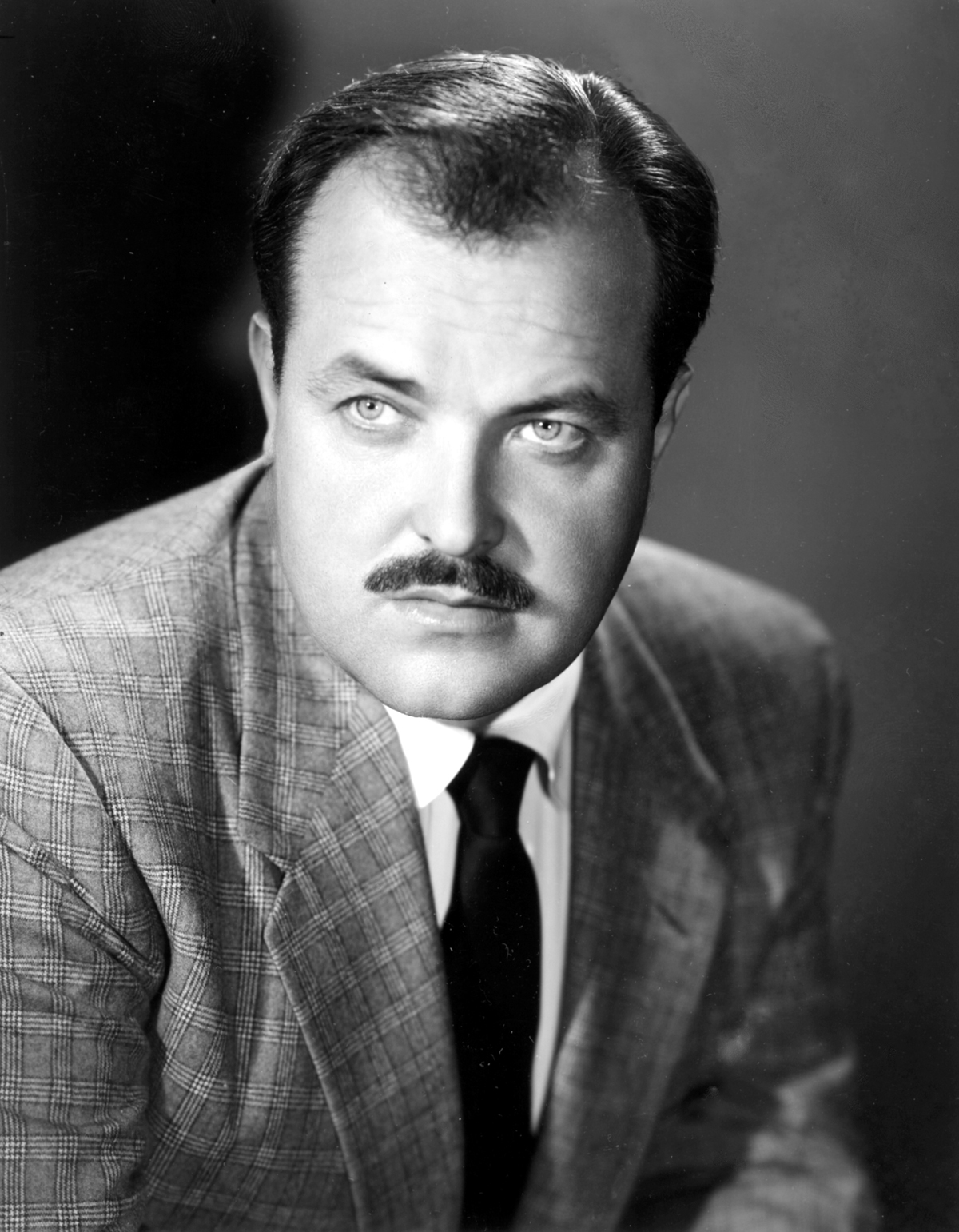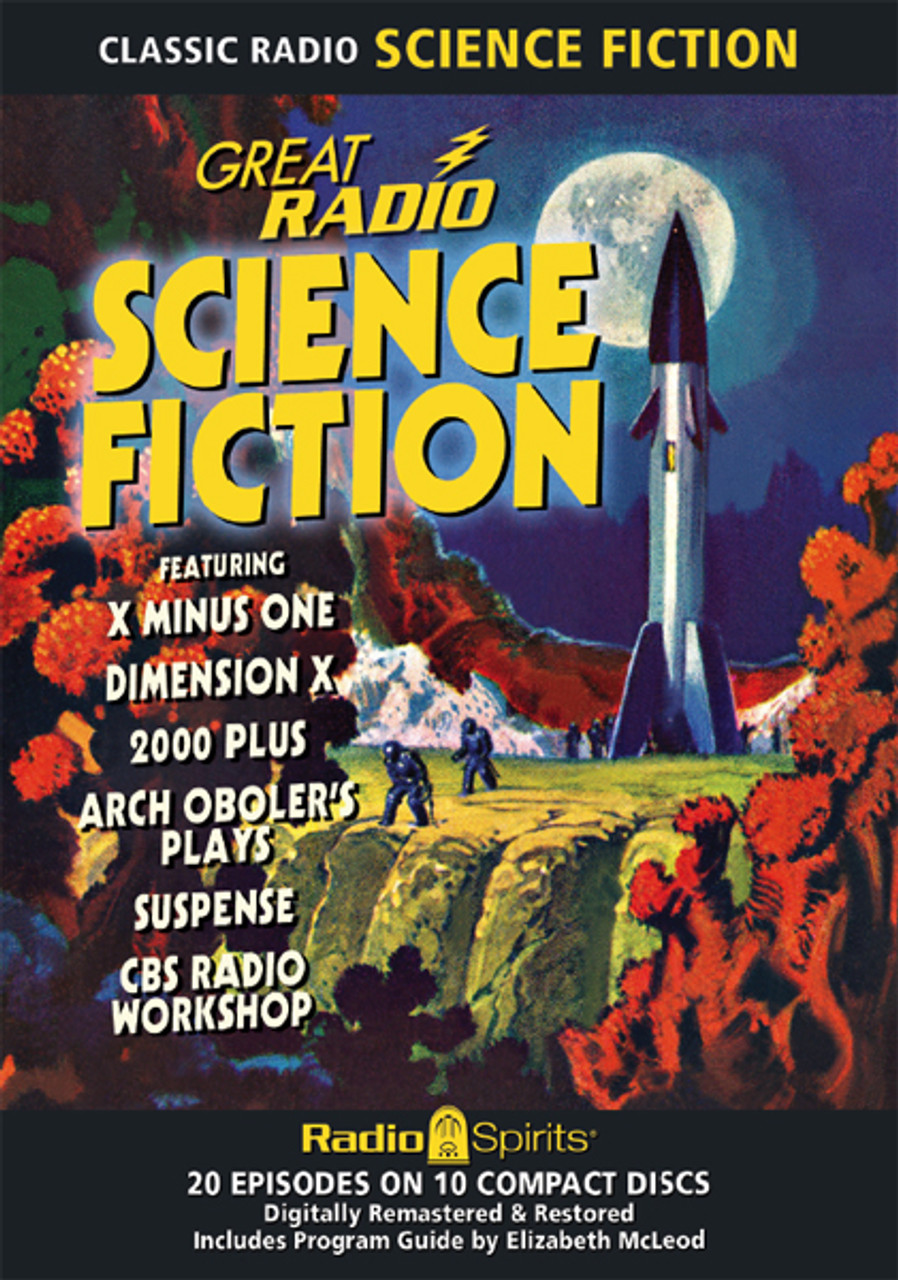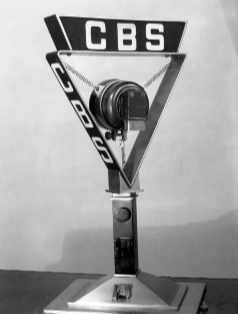“...dedicated to man’s imagination…the theater of the mind…”
Posted by Ivan G. Shreve, Jr. on Jan 27th 2023
From 1936 to 1943—and a brief revival in the 1946-47 season—The Columbia Workshop was the go-to program for experimental radio drama. The series began as an idea by one-time engineer Irving Reis, and during its run would establish the reputations of such radio giants as director-producer William N. Robson and playwrights Archibald MacLeish and Norman Corwin. Surviving broadcasts demonstrate the phenomenal power of the medium, allowing listeners to experience radio’s limitless possibilities to entertain and inform. By the mid-1950s, however, radio was starting to be shoved out of the limelight by its obnoxious younger sibling, television. The time was right for a revival of the Workshop; as CBS vice president Howard Barnes related at that time to Time magazine: “We’ll never get a sponsor anyway, so we might as well try anything.” That program debuted on this date in 1956: The CBS Radio Workshop.
CBS vice president William Froug, a fan of Norman Corwin and The Columbia
Workshop, was the force behind the new CBS Radio Workshop,
pitching the idea to Barnes (who suggested to Froug the new title). Froug
quickly went to work establishing the series, deciding that the inaugural
broadcast would be an adaptation of Aldous Huxley’s Brave New World, for
which he wrote the script. Bill even convinced the author to narrate the
production and for the announcer, chose the only person with a suitably
powerful presence: “The Man of a Thousand Voice” himself, William Conrad.
William Conrad would figure more prominently on The CBS Radio Workshop
than just stepping in to handle the announcing duties. Many of Workshop’s
most memorable broadcasts put Conrad in the spotlight: “The Legend of Jimmy
Blue-Eyes,” for example, a folk ballad enacted in music and rhyme, features
Bill’s mesmerizing narration. “A Matter of Logic” pits a stubborn Conrad
against Antony Ellis (the writer-producer makes a rare appearance in front of
the microphone) in an argument waged against the background of a ticking clock.
Many CBS Radio Workshop fans consider “1,489 Words” to be one of
the series’ finest, in which Conrad demonstrates through prose and poetry that
a picture isn’t necessarily worth a thousand words.

William Froug served as the executive producer of The CBS Radio Workshop,
assigning scripts and hiring directors in coordinating the program. As old-time
radio historian John Dunning states, Froug recalled that “Everybody on the
second floor of CBS Radio at Columbia Square was excited about the show. Every
day guys were coming into my office pitching ideas. Bill Conrad had a show
idea; so did [composer-conductor] Jerry Goldsmith. I had never seen such
excitement in my nine years at CBS.” That excitement would be responsible for
such classic broadcasts as “An Interview With Shakespeare,” “The Enormous
Radio,” “Colloquy Three: An Analysis Of Satire” (with the immortal Stan Freberg),
“Report On the We’ans,” and one of my particular favorites, “Nightmare,”
featuring “Mr. Radio” (Elliott Lewis) as a man experiencing terrifying dreams
while in a coma.
The enthusiasm for The CBS Radio Workshop was such that employees
working for the network on the East Coast started getting jealous of the fun
that their West Coast counterparts were having. They lobbied veep Howard Barnes
to get in on the action. Soon, the Workshop developed a rotating
system where every other show would be produced in New York under the
supervision of Paul Roberts. The broadcast history of Workshop
was a brief one (it departed the airwaves on September 22, 1957) but featured
the talents of directors like William N. Robson, Jack Johnstone, and Antony
Ellis and music by Bernard Herrmann, Jerry Goldsmith, and Ray Noble. The creme
de la creme of radio actors also cashed a (non-sponsored) paycheck: Parley
Baer, Lurene Tuttle, Hans Conried, Joseph Kearns, and so many more.
Each broadcast of The CBS Radio Workshop was prefaced with “This
is The CBS Radio Workshop…dedicated to man’s imagination…the
theater of the mind.” Those last four words have come to describe the joys and
wonders of radio drama and why Radio’s Golden Age remains so exhilarating for
generations old and new. A show that is most fortunate in that all of its 87
broadcasts have survived the ravages of time and neglect, John Dunning said it
best: “A lovely way to end a day, a decade, or an era.”

The inaugural broadcasts of The CBS Radio Workshop—broadcasts because “Brave New World” was a two-parter (January 27 and February 3)—are featured on Radio Spirits’ Great Radio Science Fiction collection, along with the Workshop presentations of “A Pride of Carrots” (09/14/56; another favorite of yours truly), “The Space Merchants” (02/17 and 02/24/57), and “The Green Hills of Earth” (07/21/57). In addition, Great Radio Christmas spotlights “All is Bright” (12/23/56), the delightful story of how “Silent Night” came to be written and established as a Yuletide classic. Happy anniversary to what is truly an amazing artifact of radio!

